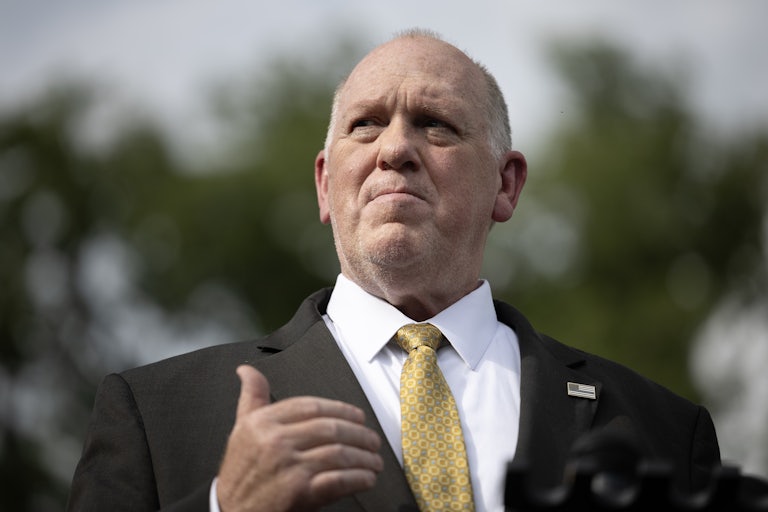Judge Rips DOJ Lawyers for Undermining Own Case Against Abrego Garcia
Judge Paula Xinis also said the federal lawyers’ arguments were “insulting” to her intelligence.

A federal judge shredded Justice Department lawyers Friday over their shoddily constructed case to deport Kilmar Abrego Garcia, the man wrongfully removed to El Salvador earlier this year.
During a hearing, U.S. District Judge Paula Xinis once again proved that she doesn’t suffer fools as she torched the government’s lawyers for failing to produce an ICE detainer for Abrego Garcia. Xinis had made the request Monday and gave the government until Thursday to fulfill the order.
When the lawyers said they were still working on it, the judge didn’t buy it.
“You have taken the presumption of regularity and you’ve destroyed it in my view,” Xinis said, according to Politico’s senior legal affairs correspondent Kyle Cheney. The presumption of regularity gives particular deference to the executive branch for certain facts and details.
Xinis had heard roughly four hours of testimony on Thursday from Thomas Giles, assistant director for ICE enforcement and removal operations, who said that the government hadn’t yet determined what third country it planned to deport Abrego Garcia. Giles said that the government wouldn’t even begin to consider where to send him until he was back in the custody of ICE. Xinis was outraged that Giles hadn’t provided basic answers.
The judge said it was “insulting to [her] intelligence” that Giles would testify without having consulted with the office that would handle the case, according to Lawfare’s Anna Bower. As the hearing continued, she became increasingly frustrated that the government still offered no answers on its plan to remove Abrego Garcia.
Giles had claimed that Abrego Garcia would “get a fear interview if he claims fear of return” or if he has a fear “of being returned to a third country.” But Xinis hit back at the government’s claim that Abrego Garcia might be treated like any other migrant detainee in ICE custody, noting that nothing about his case has been business as usual. “That’s not credible,” she said. “I’m just telling you, I’m not buying that.”
The government argued that Giles’s testimony had demonstrated what happened to detainees like Abrego Garcia. “Name me one alien like Mr. Abrego, who has experienced what happened to him,” Xinis fired back.
Xinis said that the government’s claim that the decision of where to send Abrego Garcia would be left to a desk officer “defies reality.”
The judge asked how the government’s claims square with a March 2025 memo and a July 9 email stating that if a third country made assurances to prevent torture or persecution, that “no further procedures” were necessary. While the government initially said that Abrego Garcia would still receive a fear interview, they eventually admitted the procedure outlined in the memo and email would likely apply to him.
The judge also slammed the government for attempting to deport Abrego Garcia after spending months claiming that he was a so-called “leader” of MS-13, while providing only paltry evidence. “What’s that going to do for any country that this man has to face a third party removal to?” she asked.
Abrego Garcia had previously received a protective order preventing his removal to El Salvador, for fear of violence—which the government ignored by removing him there earlier this year. The Maryland man was returned from El Salvador to Tennessee to face two flimsy charges related to illegally transporting undocumented immigrants for cash. Despite a judge ordering Abrego Garcia’s release from pretrial detention, he still remains in custody after claiming that he feared he’d be deported by immigration authorities—who confirmed that was their plan. But the details of that plan are still unclear.









